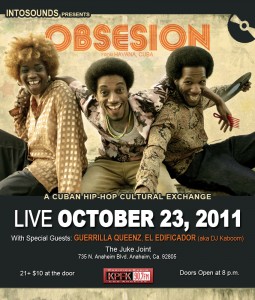Cuba: Failure as a Raceless Society
March 1, 2012 by daloyo
After Castro’s revolution overthrew Batista’s oppressive, fundamentally capitalist regime, one of the goals of the new order was to create a society where everyone were completely equal regardless of income, race, background, anything. It is understandable to see how these thoughts were generally accepted by Cuba’s new leaders. After all, as a Spanish colony and as a semi-colony of the United States, most of the population was left to be marginalized either through slavery, poverty or other types of oppression. A hierarchy existed in Cuba where the white elites were privileged at the top and the poor Afro-Cubanos were at the bottom. Therefore, after the revolution, the new government wanted to promote a raceless Cuba, a society where race did not matter and everyone was equal. Those who promoted this idea probably thought that racism and discrimination would cease to exist.
However, as Sujatha Fernandes and other scholars point out, a raceless society did not completely solve the issues that Afro-Cubanos faced. By promoting a raceless Cuba and completely ignoring race does not solve racism and instead marginalizes any issue regarding this subject. Therefore, instead of dealing with the issues and promoting justice, discrimination remains and Afro-Cubanos remain oppressed. This is why the hip hop movement has begun to spring up in Cuba among the Afro-Cubano community. Through hip hop and rap, Afro-Cubanos have found a means to use their voice to express their disdain with society as they continue to be plagued by racial discrimination that some Cubans want to ignore through their raceless Cuba.
As Fernandes points out, the plight of the Afro-Cubanos through hip hop and rap cannot be repressed and ignored as the Cuban government has tried to do before. Race cannot be ignored especially since there is a long history of oppression against black peoples worldwide. A society where equal treatment is the norm should be much more appealing than a society that completely ignores race. Although, everyone deserves equal treatment, people are not all equal and parts of their identities cannot be cast aside to the background.
One thing that is problematic is the fact that Afro-Cubanos have started using hip hop and rap but these genres originated in the United States, which is Cuba’s historical foe. This circumstance is oppositional to the Cuban government’s anti-United States rhetoric. Although, this is an issue, the Afro-Cubano people are using the genre to express themselves and the government cannot completely disregard the movement. Instead, this can serve Cuba in their anti-United States stance by promoting a racially equal society, one where races are respected but everyone is treated equally. Promotion of this idea would demonstrate that Cuba is moving to a more just society unlike the racially unequal society of the United States.
Source: Sujatha Fernandes, “Fear of a Black Nation: Local Rappers, Transnational Crossings, and State Power.” Anthropological Quarterly 76:4 (Fall 2003), 575-608.
Leave a Reply
You must be logged in to post a comment.

